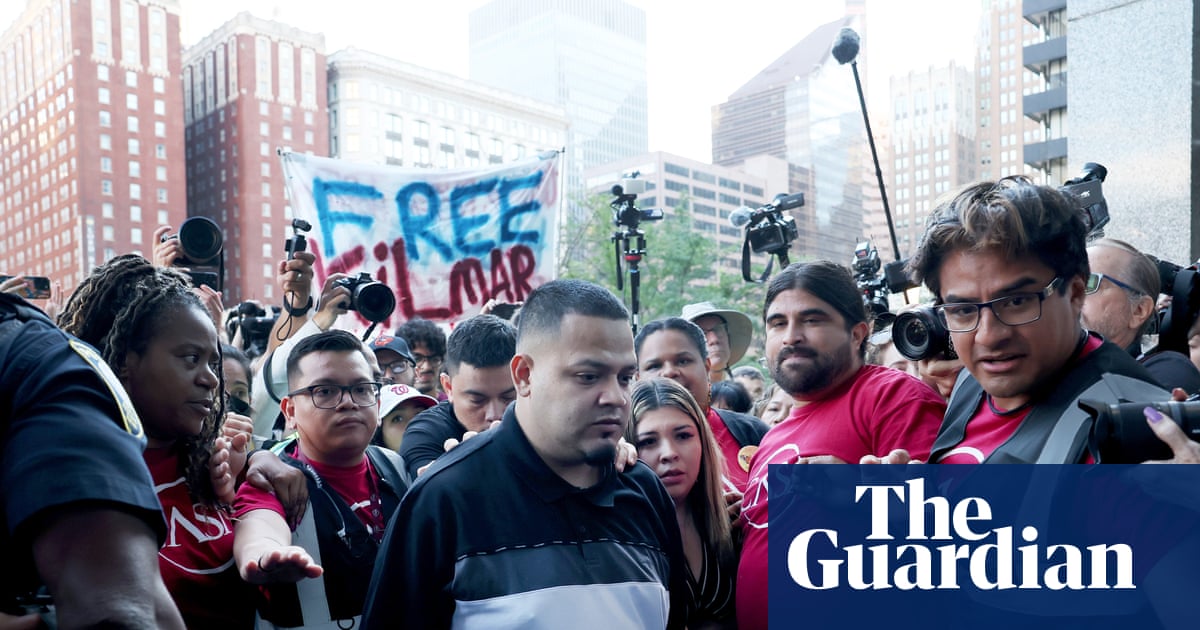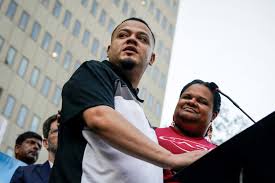Kilmar Abrego Garcia, a Maryland man who recently reunited with his family after being wrongly deported to El Salvador and subsequently returned to the United States, found himself back in the detention system following an appointment with U.S. Immigration and Customs Enforcement cICEc in Baltimore. This check-in, mandated by the terms of his release from federal custody, turned contentious as the Trump administration signaled its intent to deport him to Uganda over the weekend.
Notably, Abrego's attorneys anticipated his detention, viewing it as a punitive measure for his outspokenness in contesting the deportation proceedings. Simon Sandoval-Moshenberg, one of his legal representatives, criticized the decision to take Abrego into ICE custody, citing it as an attempt to intimidate him for exercising his constitutional rights.
After a swift series of legal maneuvers, a federal judge intervened, issuing a ruling that prevents Abrego from being deported to Uganda — at least temporarily. The judge, U.S. District Judge Paula Xinis, ordered that Abrego must remain detained in the U.S. until an upcoming evidentiary hearing that will address the jurisdictional grounds and potential risks associated with deporting him to Uganda.
Throughout the unfolding legal drama, Abrego has steadfastly maintained his innocence against charges of human smuggling and has rejected offers of a plea deal that could lead to deportation to Costa Rica. His legal team has underscored the importance of due process and fair proceedings, arguing that any potential deportation must be contingent upon credible assurances of safety and protection in the receiving country.
Abrego's case has sparked national attention and raised concerns about the broader implications of erroneous deportations. Sandoval-Moshenberg highlighted that Abrego's situation is not isolated, noting that numerous other individuals may have also faced wrongful deportations. The attorney emphasized the evolving challenges posed by third-country removals and underscored the need for legal safeguards to prevent arbitrary deportations without proper due process.
Amidst a backdrop of community support, faith leaders, activists, and Abrego's family have rallied behind him, advocating for his freedom and denouncing what they perceive as unjust treatment by immigration authorities. Abrego's resilience in the face of legal hurdles and government pressure has garnered widespread support, with many echoing his call for justice and fair treatment within the immigration system.
The saga of Kilmar Abrego Garcia serves as a poignant reminder of the complexities and injustices embedded within the U.S. immigration system. As legal battles continue to unfold and public scrutiny intensifies, the case underscores broader concerns about due process, constitutional rights, and the impact of immigration policies on individuals and communities.
In a climate marked by heightened immigration enforcement and policy changes, Abrego's story stands as a compelling narrative that sheds light on the human toll of deportation proceedings and the critical need for accountability, transparency, and fairness in immigration practices.
The latest developments in Abrego's legal battle underscore the enduring challenges faced by individuals caught in the crosscurrents of immigration enforcement and legal proceedings. As the case continues to unfold, it raises fundamental questions about the balance between security concerns, individual rights, and the overarching principles of justice and human dignity in the realm of immigration law and policy.


